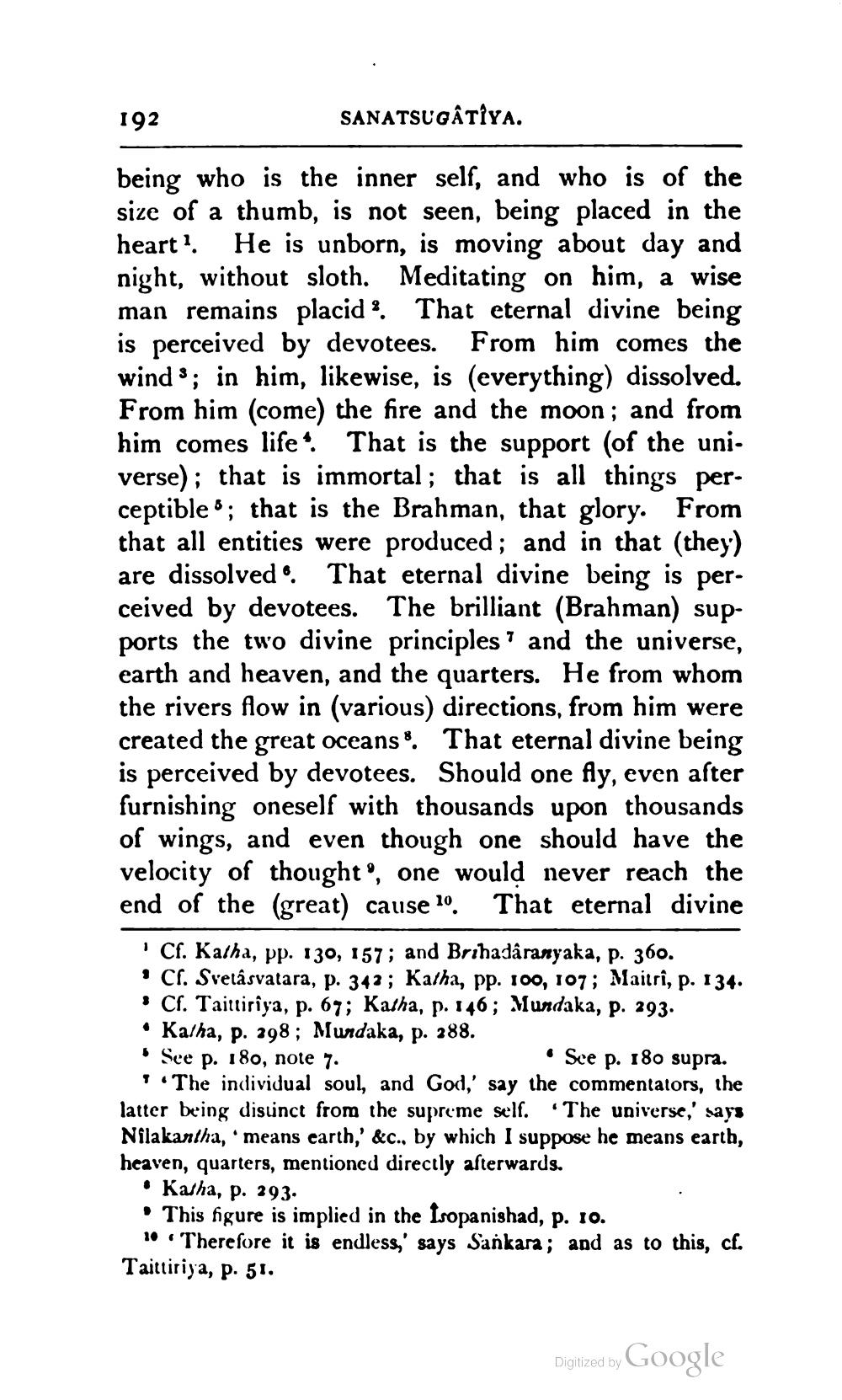________________
192
SANATSU GÂTIYA.
being who is the inner self, and who is of the size of a thumb, is not seen, being placed in the heart? He is unborn, is moving about day and night, without sloth. Meditating on him, a wise man remains placids. That eternal divine being is perceived by devotees. From him comes the wind 8; in him, likewise, is (everything) dissolved. From him (come) the fire and the moon; and from him comes life. That is the support (of the uni. verse); that is immortal; that is all things perceptible 8; that is the Brahman, that glory. From that all entities were produced ; and in that (they) are dissolved. That eternal divine being is perceived by devotees. The brilliant (Brahman) supports the two divine principles' and the universe, earth and heaven, and the quarters. He from whom the rivers flow in (various) directions, from him were created the great oceans That eternal divine being is perceived by devotees. Should one fly, even after furnishing oneself with thousands upon thousands of wings, and even though one should have the velocity of thought, one would never reach the end of the (great) cause 10. That eternal divine
Cf. Katha, pp. 130, 157; and Brihadaranyaka, p. 360. • Cl. Svetâsvatara, p. 342; Katha, pp. 100, 107; Maitri, p. 134. · Cf. Taittirîya, p. 67; Katha, p. 146; Mundaka, p. 293. • Kalha, p. 298; Mundaka, p. 288. See p. 180, note 7.
• See p. 180 supra. '.The individual soul, and God,' say the commentators, the latter being disunct from the supreme self. The universe,' says Nilakantha, .means carth,' &c., by which I suppose he means earth, heaven, quarters, mentioned directly afterwards.
• Kasha, p. 293. • This figure is implied in the Isopanishad, p. 10.
10 • Therefore it is endless,' says Sankara; and as to this, cf. Taittiriya, p. 51.
Digitized by Google




